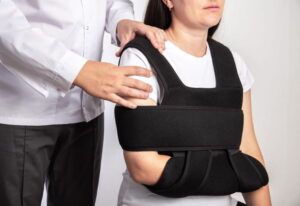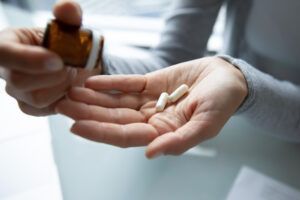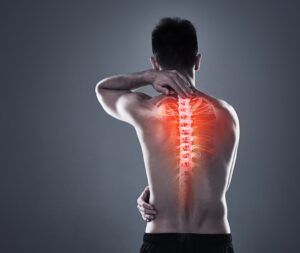Concussions, a form of traumatic brain injury (TBI), are increasingly recognized as a significant health concern for athletes. Whether sustained in contact sports, falls, or accidental collisions, concussions require immediate attention and a structured recovery plan. At Premier Orthopaedics & Sports Medicine, P.C., with locations in Bloomfield, Englewood, and Union City, NJ, we emphasize athlete safety and provide comprehensive care for concussion management and recovery.
What Is a Concussion?
A concussion occurs when a blow to the head or body causes the brain to move rapidly within the skull. This motion disrupts normal brain function, leading to a variety of symptoms that can range from mild to severe. It’s crucial to understand that concussions don’t always involve a loss of consciousness, making symptom recognition essential for prompt care.
Common symptoms of a concussion include:
- Headaches or pressure in the head
- Dizziness or balance issues
- Nausea or vomiting
- Sensitivity to light or noise
- Difficulty concentrating or remembering
- Mood swings or irritability
Risks of Ignoring Concussions
Athletes may be tempted to brush off concussion symptoms, especially in the heat of competition. However, untreated concussions can lead to severe complications, such as prolonged recovery, chronic traumatic encephalopathy (CTE), or second-impact syndrome. The latter occurs when a second concussion is sustained before the first has fully healed, potentially causing irreversible brain damage or even fatality.
Immediate Steps Following a Suspected Concussion
Proper management begins the moment a concussion is suspected. Here’s a step-by-step guide:
- Remove the athlete from play immediately. Continuing activity can exacerbate the injury.
- Perform an initial assessment. Check for signs of confusion, memory loss, or imbalance.
- Seek professional evaluation. A medical professional specializing in sports injuries should assess the athlete for a confirmed diagnosis.
- Follow prescribed rest protocols. Rest is critical during the acute phase of recovery.
The Role of Medical Evaluation
At Premier Orthopaedics & Sports Medicine, our specialists utilize advanced diagnostic tools and techniques to accurately assess the extent of a concussion. This may include neurological exams, imaging studies, or balance assessments. Early and precise diagnosis ensures that recovery strategies are tailored to the individual needs of the athlete.
Safe Management Strategies for Athletes
A concussion recovery plan typically consists of both physical and cognitive rest, followed by a gradual reintroduction of activities. This ensures that the brain has time to heal while minimizing the risk of prolonged symptoms.
Key components of safe recovery include:
- Rest: Limiting physical activity and screen time to reduce brain strain.
- Hydration and Nutrition: Supporting recovery through proper hydration and a balanced diet.
- Sleep: Ensuring adequate rest to promote healing.
- Gradual Return-to-Play Protocols: Athletes should only resume sports activities under medical supervision.
Importance of Education and Prevention
Concussion prevention begins with awareness. Athletes, coaches, and parents must be educated about the risks, symptoms, and protocols for managing concussions. Implementing safety measures such as proper equipment, adherence to sport-specific rules, and teaching techniques that minimize head impacts can significantly reduce the likelihood of injury.
Key prevention strategies include:
- Wearing properly fitted helmets in contact sports.
- Strengthening neck and core muscles to stabilize the head during impact.
- Establishing a team culture that prioritizes health over competition.
Long-Term Considerations for Athletes
Even after recovery, athletes with a history of concussions may experience long-term effects, including cognitive or emotional challenges. Regular follow-ups with a healthcare provider can help monitor and address any lingering issues. For athletes with multiple concussions, transitioning to non-contact sports may be necessary to preserve long-term health.
Recovery Is a Team Effort
At Premier Orthopaedics & Sports Medicine, P.C., we believe that the journey to recovery is a collaborative process. Our experienced team works closely with athletes, families, and trainers to ensure a comprehensive approach to concussion care. By addressing immediate needs and long-term well-being, we aim to protect the health and performance of every athlete under our care.
Concussion management is not just about individual recovery; it’s about fostering a culture of safety in sports. When athletes, coaches, and communities prioritize education, prevention, and proper care, the risks associated with concussions can be significantly reduced. This commitment to safety allows athletes to continue pursuing their passion while safeguarding their health for the future.
Sources
- Giza, C. C., & Hovda, D. A. (2014). The New Neurometabolic Cascade of Concussion. Neurosurgery.
- McCrory, P., Meeuwisse, W., Dvorak, J., et al. (2017). Consensus Statement on Concussion in Sport. British Journal of Sports Medicine.
- Collins, M. W., Kontos, A. P., & Reynolds, E. (2016). A Comprehensive, Targeted Approach to the Clinical Care of Athletes Following Sport-Related Concussion. The Journal of Orthopaedic & Sports Physical Therapy.




